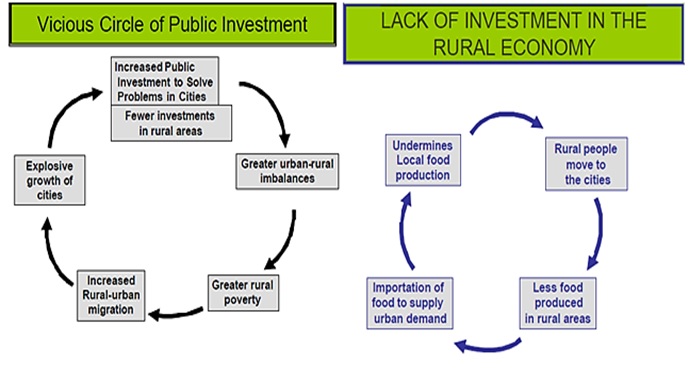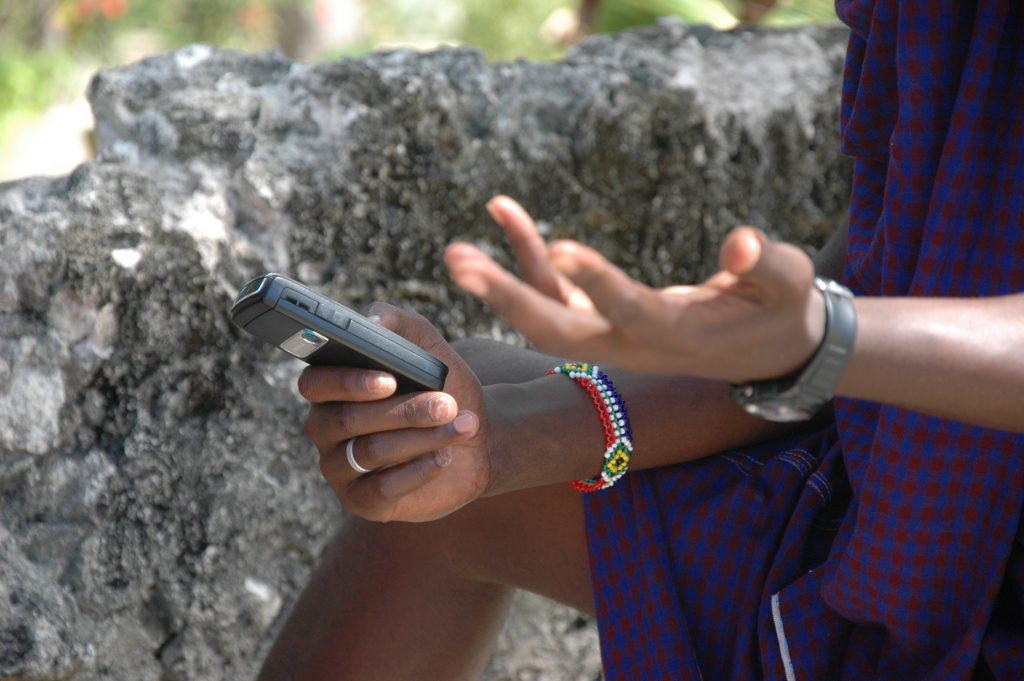In 2012, the average GDP for the Caribbean stood at US$8.945 Billion. Agriculture (including farming, fishing and forestry), contributes 7.8% to GDP, and employs at least 16.3% of the region’s labour force. Although not the greatest contributor to GDP and employment, agriculture is still an important sector in the region. Research from the CARICOM Secretariat suggests that agriculture’s contribution can be between three to seven times higher than the reported figure, that is, when the backward and forward linkages in the commodity chain are considered. The Secretariat goes on to state that “agriculture contributes to three fundamental aspects of development, namely: national food security; national social stability; and, environmental protection for this and future generations[i].” Additionally, agriculture remains the main source of food and income for the rural population – it is a way out of poverty for most. This sector demands recognition, investment and sustainable practices.
In order to strengthen their agricultural sectors, many developing countries have employed mobile-Agriculture (m-Agriculture) solutions– which “refer to the agricultural services, technology dissemination, and communication using mobile devices such as mobile phones, laptops, netbooks, PDAs and other wireless enabled devices”, in an effort to educate and uplift farmers on all scales. Countries like Bangladesh, India and Nigeria have used this tool in order to provide farmers with weather briefings, market information (products, prices and availability), and other agricultural information and tips. Weather briefings aid the farmers in deciding what products to plant or reap and when. Market information makes farmers aware of the fairest market prices so that they are not paid less than they deserve. This information is also important to consumers – as Ronda Zelezny-Green puts it: “…when pricing transparency and information on the supply of crops are unavailable or inaccurate, food security can become threatened by panic buying and hoarding.” [ii] In Bangladesh, this service has been taken further, directly connecting the farmers and consumers, allowing both parties to conduct mobile-commerce over their mobile devices [2]. Such a move has allowed farmers to target niche markets, gaining loyal customers, whilst increasing their profits. Jamaica’s Agriculture Market Information System (JAMIS) provides market information to persons with access to internet, but it is a Kingston-based company called Real Farm Freshness that has taken the next step to be directly connected to consumers, offering commercial and delivery services. The provision of agricultural information and tips provides farmers in Rwanda with the necessary know-how in crop cultivation, increasing productivity, soil protection, and so on. This service aims to improve farming outputs, whilst protecting farmlands through encouraging sustainable farm practices [1]. Paul Barera, Chairman of the Rwanda Telecentre Association, describes how the said telecentre facilitates m-agriculture through the provision of animated videos that teach farmers best practices in agriculture. In India, this service is also used to deliver e-Education; by providing farmers with an English-word-a-day and other topics on general knowledge, m-Agriculture is aiding in the reduction of illiteracy among farmers.
Besides boosting productivity and profits for the sector, such an investment in agriculture could help stem rural to urban migration, reducing the strain on resources in the urban areas, as well as reduce our reliance on food importation (see cycles below [3]). M-Agriculture could further be used to provide security against praedial larceny, which robs regional farmers of hundreds of millions of dollars (US$) each year. A suggestion put forward by T.C. Hall [4] is an Electronic Laser Fence Security Alert System that alerts farmers by SMS of the presence of suspected intruder(s) on their farmlands. Whilst a very noble and innovative idea, the cost of such of system may exclude small farmers, making them greater prey to praedial thieves. Why m-Agriculture is seen as relevant to developing countries is because of the fact that mobile phones are the main points of access to this service (with internet connection not being a necessity). Mobile phones are the most popular ICTs that persons of all social backgrounds have access to– as such, it is seen at the ideal gateway to the rural community in providing m-agriculture and other services. A more inclusive m-Agriculture security service would then be the registration of all farmers in a database that forms part of a system, through which they can send out quick alerts of praedial thefts. This alert would be sent to all persons closely tied to the sector (such as other farmers and middlemen) as well as the nearest police station. This could go a long way in reducing the process of filing a police report, allowing for a quicker response by the police whilst the trail is still hot. The second response would be for the victim to alert consumers, given that whatever has been stolen is unfit to be consumed, as well as make them aware of those guilty of reselling goods received through praedial theft. In investing in the sector, our governments could also install CCTV cameras in strategic (and hidden) locations close to farmlands, in an effort to identify and apprehend praedial thieves.

In closing, it must be reinforced that agriculture is a very important sector in the region, especially for economic development. Our governments are guilty of imbalanced investment in urban and rural development, with the former receiving excessive investment in the areas of industry and service. We need to recognize the importance of agriculture – how it can: (1) create jobs in both the rural (farming, forestry and fishing) and urban (food processing for local, regional and international markets); (2) support medical and other scientific research, given that we diversify our crops; and (3) improve our food security, reducing our massive food importation bill. And although still relatively new, m-Agriculture can further prove to be beneficial if introduced to the other areas of agriculture, namely forestry and fishing.
______
[1]Antonella Pastore, “M-Agriculture: mobile devices and their role in transforming communication” (http://ictkm.cgiar.org/2010/06/04/m-agriculture-mobile-devices-and-their-role-in-transforming-communication/) [2]Jason Kohn, “M-agriculture Empowers Farmers in Developing Economies” (http://blogs.cisco.com/cle/m-agriculture-empowers-farmers-in-developing-economies/) [3] CARICOM Secretariat, “A New Vision for Agriculture in the Caribbean in the 21st Century” (www.caricom.org/jsp/community/donor_conference_agriculture/iica.pdf) [4]Tyrone Christopher Hall, “Tackling Jamaica’s Two Main Agricultural Plagues with ICT” (http://ardyis.cta.int/en/resources/publications/item/76-tackling-jamaica’s-two-main-agricultural-plagues-with-ict)_________________________
[i] CARICOM Secretariat, “A New Vision for Agriculture in t
he Caribbean in the 21st Century” (www.caricom.org/jsp/community/donor_conference_agriculture/iica.pdf)
[ii] Telecoms Market Research, “Mobile Agriculture: A Development Imperative for MNOs and Farmers Alike” (http://www.telecomsmarketresearch.com/research/TMAAAZSF-Mobile-Agriculture–A-Development-Imperative-for-MNOs-and-Farmers-Alike-.shtml)




![The e-Development of the Caribbean Series [Part Two]: e-Governance as a Catalyst for Democracy and Image-Building](https://ccrtd.org/wp-content/uploads/2019/12/20190309_CND000_0-1024x576.jpg)




Paul Ellis
I am not sure I agree with you. It sounds like “m-agriculture” is just another academic buzz word used by academics to write papers and attend conferences. As even you seem to admit in your article, it is not government or quasi government initiatives that are the solution but input from entrepreneurs and IT developers that hold the real key to success in agriculture.
It may be just my jaundiced view, but I read “inclusive” as used in your discussion as “slow, inefficient and ineffective”; in a word “government”.
Jon Dujon
Hi Mr. Ellis. Thank you for your feedback. Actually, m-Agriculture is very big in a number of African and Asian countries. You are right in saying that it seems that entrepreneurs and IT developers hold the key to success in agriculture, but for instance, JAMIS is actually operated by the Ministry of Agriculture & Fisheries, Agricultural Market Information Division in Jamaica – what is then stopping this ministry (and similar ministries in the regions) from partnering with mobile services providers and other entrepreneurs in developing an m-agriculture service for the region’s agriculturists? M-Agriculture is definitely not the only solution for the ailing sector, but I think it is worth the effort. It is not limited to the services I have described in my article, and to me, it represents one way in which our governments could invest more in the rural community.